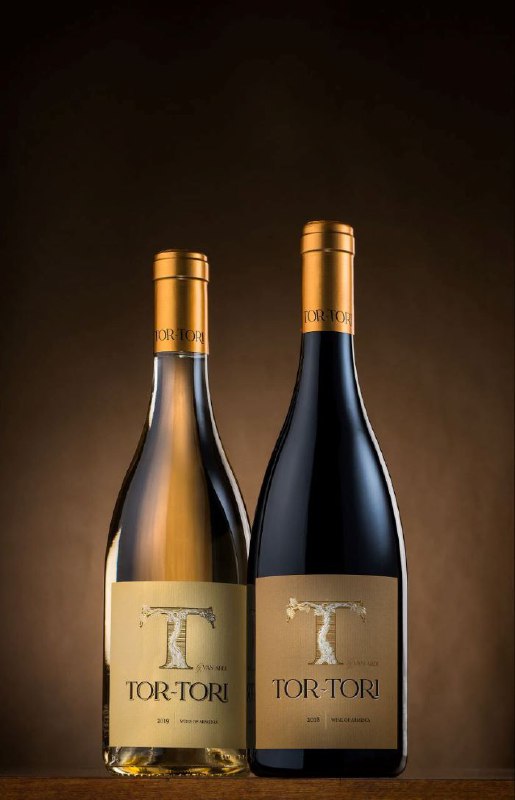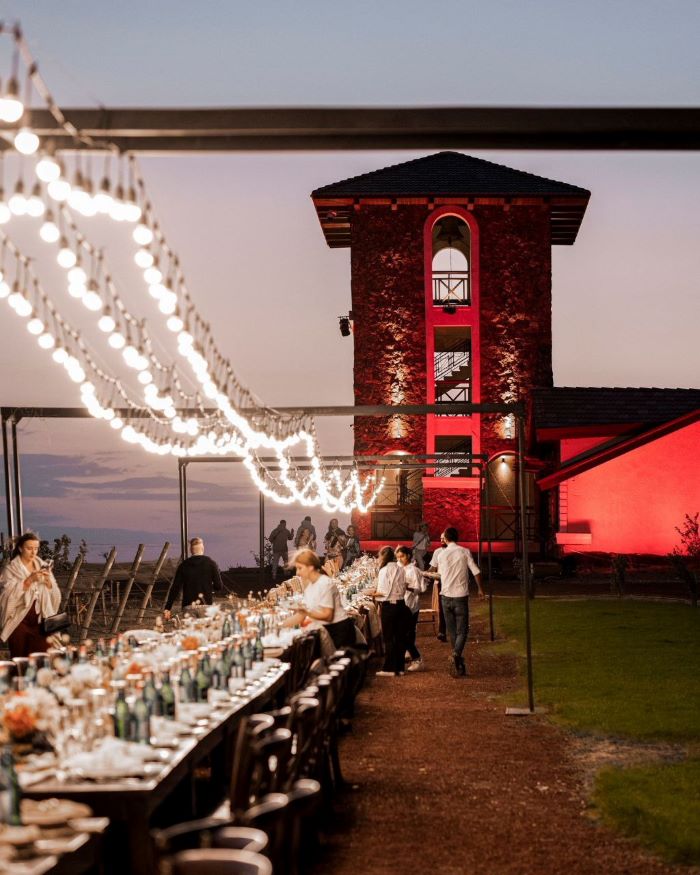Wine Story: Van Ardi Wines are about Armenia's heritage
Right
The Van Ardi winery, located in the ancient wine-growing Province of Aragatsotn, is the first boutique winery in Armenia and has played a key role in the renaissance of Armenian winemaking. This is a passion project that aims to spread the understanding of wine as a way of life. Van Ardi was created for the wine lover in every Armenian and the Armenian wine lover in every traveler. NEWS.am STYLE spoke with Varuzhan Muradyan, the founder, director, and winemaker of Van Ardi Wines company, about the history of Van Ardi, Armenian winemaking and winemakers, and the intricacies of wine production.
Varuzhan Muradyan was "absent" in Armenia for 20 years; he had left for Los Angeles with his wife. For every Armenian, returning to his homeland, Armenia, should be a normal phenomenon, even, one might say, typical, and not paradoxical, without the questions that we usually like to ask. "How can you leave America and return to Armenia?"
"My profession was completely different from the beginning, it had nothing to do with wine and winemaking, I worked in the finance sector, sitting in the office, among piles of papers and bills, in general, I liked it, the work was not difficult and was stable. But every year I realized that the office is absolutely not the place where I would like to spend part of my life, and work, after all, takes up a large part of one's life. I wanted to do something creative so that something is constantly being created and developed around me, and I can be a part of this process."
Thus, Muradyan slowly but steadily approached the path called "winemaking," which he continues to this day. He saw how the wine production was developing in the US and thought that his homeland has all the good things, just as Varuzhan himself notes, a clear, correct plan is needed to promote this business.
Van Ardi is about the heritage of Armenia, the once great city of Van, the capital of Urartu, which is also called the cradle of the Armenian people. History has always interested Muradyan, and the question of how it happened that Ancient Armenia, once famous for its winemaking art, which transported its wines around the world, today modestly stands at the corner of a huge layer of wine production, interested him for a long time.
"Ultimately, we have preserved our terroir, grape varieties, our sun, our air, everything that enabled our ancestors to obtain the wine that was praised by historians and cupbearers of various countries and peoples. By asking this question, I was sure that it would be possible to recreate this process in my homeland and, with hard work, once again publicly announce the wines of Armenia."
And this is what the Muradyan family did. "We made a decision, moved, studied the lands of various territories and regions of Armenia, acquired territories, and started. In 2008, we planted our first grapes, took the first step, and since that year we have been walking and developing on this path until now."
Its founder does not want to turn Van Ardi into some large-scale production, as the essence of his work is historical simplicity and lightness. "We don't want to lose the personal connection with nature and gardens; that is, in our understanding, the garden is the winemaker, good wine begins exactly where the grapes grow, in the vineyards. To do this, the winemaker only needs to create the necessary conditions that will enable the grapes grown in this land to express themselves, to show the best qualities that could be taken from this terroir and later become a recognizable wine."In addition to the right conditions, environment and care, the winemaker must keep his raw materials clean, without chemical additives, and use only organic fertilizers. Van Ardi grapes are grown in accordance with this principle. "Our winemaking philosophy is based on careful treatment of nature and maximum respect for local grape varieties. We pride ourselves on our organic vineyards and low intervention approach to winemaking, which enables us to bring out the pure qualities of our local varietals. Biodynamics also plays an important role in our work. We believe that wine is not only a delicious liquid and a type of alcoholic beverages, but also a product that reflects the energy and character of the place where the vines grow; wine reflects its homeland. Therefore, we try to create a unique atmosphere in our vineyards, where the sounds of music and bells are heard. Our vines ‘listen’ to classical, jazz, and Armenian tunes all year round, which, we are sure, gives our wine a unique character and distinctiveness," says Muradyan.Speaking about the development of winemaking in Armenia, Muradyan notes its slow but steady rise and approach to world recognition: "I wouldn't say that Armenia is experiencing some kind of strong breakthrough and evolution phase in this sector, no. And if we talk about production technologies, then we are mostly loyal to traditional production methods. For example, Georgian wines now follow some global trends and try new technologies. But, in my opinion, winemaking is in any case closer to the natural phenomenon. Just like the sun in nature, it shines and warms us now, it shined and warmed people two thousand years ago, five thousand years ago. So is case with wine. It does not change, by its nature, by its design, it is a fermented grape juice, a process that was once obtained naturally and still is. I am always ‘in favor’ of some innovations and interesting experiments in the winemaking sector, but I call and accept them as improvisations, as winemaking, being an exact science, allows making innovations in this sector. Now, whether we perceive these innovations as modernist production technologies and distinguish them from the so-called ‘traditional’ wines is another question.”
Muradyan himself is not inclined to divide wines into "modern" and "traditional." For example, barrel aging is a traditional Armenian technology of wine production, which, as the winemaker notes, is actively and very successfully used by his colleagues. At Van Ardi, for example, they learned that several thousand years ago grapes were pressed into balsa stones, and they started working in this direction. Muradyan was interested in how and why it was done, what result it should give if the whole world buys this wine and admires it.
"I don't want to see the art of winemaking in ‘black’ and ‘white,’ dividing wines into 'traditional' and 'modern.' Yes, we now have tanks, machines, and many technologies that can improve and push winemaking to a new level, we follow the trends changing every year, the new products and discoveries all over the world. But I think that first of all, you have to keep your own, local, put your values into the production, and then only promote, introduce some innovations involved from outside."
The issue related to the demand for wine in Armenia itself and the demand for Armenian wine in general is very interesting, Muradyan noted, adding that when he returned to Armenia, it was important for him to make Armenian wine known abroad, to show that the Armenians had this track-record, and it continues to this day.
"In this matter, it is not so important what taste we Armenians have and what appetites we have. It is important to take into account what taste consumers have in the markets where we represent, what they will enjoy drinking, and what exactly they want. Because over the last hundred or two hundred years, these same consumers have become accustomed to good wines, the same French, Italian, Spanish wines that have made a name for themselves over the course of several centuries and become giants of the art of winemaking, and it was they who shaped the public's taste during this time. Of course, we will not be able to immediately penetrate these ranks. Now a very difficult situation has arisen regarding the recognition of Armenian wines outside of Armenia. I am in favor of the position that at this phase—that is, now—we should produce wines according to the taste of foreign, market consumers, and when they get to know the Armenian grape varieties and learn to understand them, then they will learn to recognize our varieties and our ‘sin’, they will develop an ‘appetite,’ people will start finding their favorites among the varieties. I think that this is how we should present our wines to the world."
Muradyan noted that if you record people's requests and track which wines are currently the best sellers, you can conclude that there is a strong demand for lighter, fruitier wines, and Van Ardi is committed to these whims and always follows and takes into account the wishes of wine lovers. "When it comes to Armenian grape varieties, it is difficult to answer which one is my favorite among them," Muradyan says, noting that his favorite variety has not been created yet.
here are more than 400 varieties of grapes in Armenia, but, unfortunately, less than 10% of them are used for winemaking, which, the winemaker notes, is due to the lost centuries of Armenia without the development of winemaking in the country. In addition, there are territorial problems that have deprived Armenian winemakers of the opportunity to cultivate many extinct autochthonous varieties. There is also a period in the ex-USSR when wine grape varieties were extracted and brandy grape varieties were planted everywhere, and again there were great winemaking losses.
"Of course, now there are new vines that were once lost, including Tozot, Vanki, but we still need to work on them, carry out genetic research, which, fortunately, is now available to us thanks to a large number of good specialists in our country, who are actively are developing in this direction. Personally, I would like to mention Kristina Margaryan, who today is achieving great success in this matter and is actively and successfully studying such findings. And our task as winemakers is to get together and determine in which terroir this variety will feel better, where is its most favorable environment: Aragatsotn, Tavush, Vayots Dzor [Provinces], Ararat Valley, and do everything to start cultivating it and testing its production in Armenia."
Muradyan believes that it will take decades to renew the gears of winemaking art that have rusted in Armenia over the past centuries. Now he has "basic" varieties. Areni, Tigrani, Voskehat, Kangun, which in the first phase are now helping winemakers to stand on their feet. Of course, they have not been fully studied yet, experiments are being done with them, but each one is different from the other and each one already has its own recognizable style.
"Even if we only had as many varieties as we have now, even if we could count them on the fingers of two hands, we should be grateful and proud even for that, as there are a large number of countries that are engaged in winemaking and which, at the same time, don't have their own endemic varieties, they buy grapes from other countries, mainly the New World, of course. But as for us, even if we only had Areni, Voskehat, Kangun, and a few other varieties, we are proud that they are ours, autochthon, Armenian."

























































 Most Popular
Most Popular 
 Trust and reach across the globe
Trust and reach across the globe
